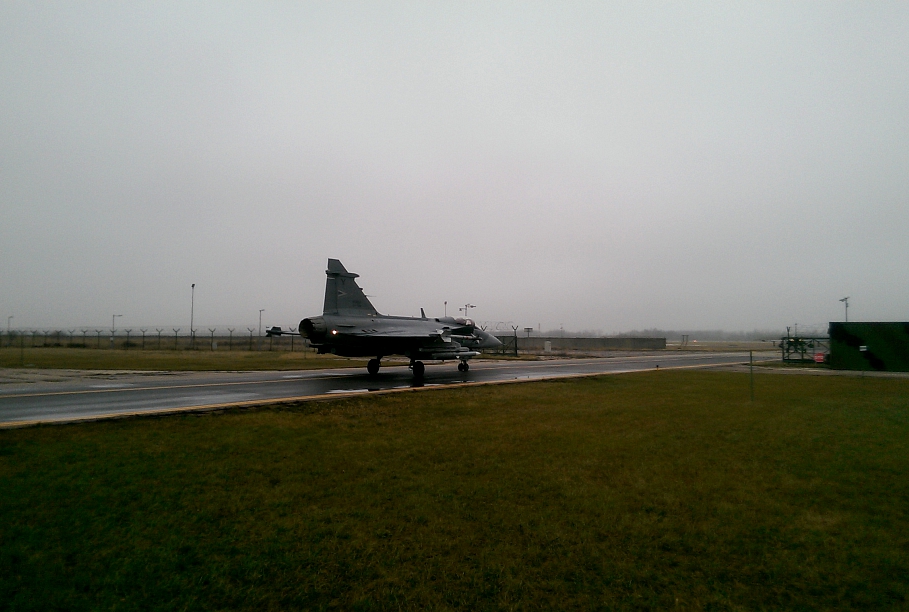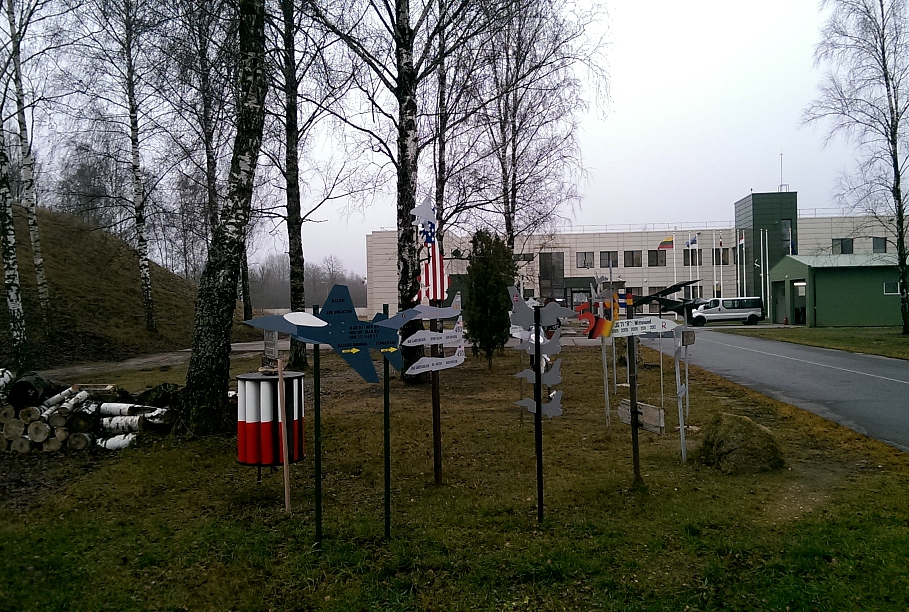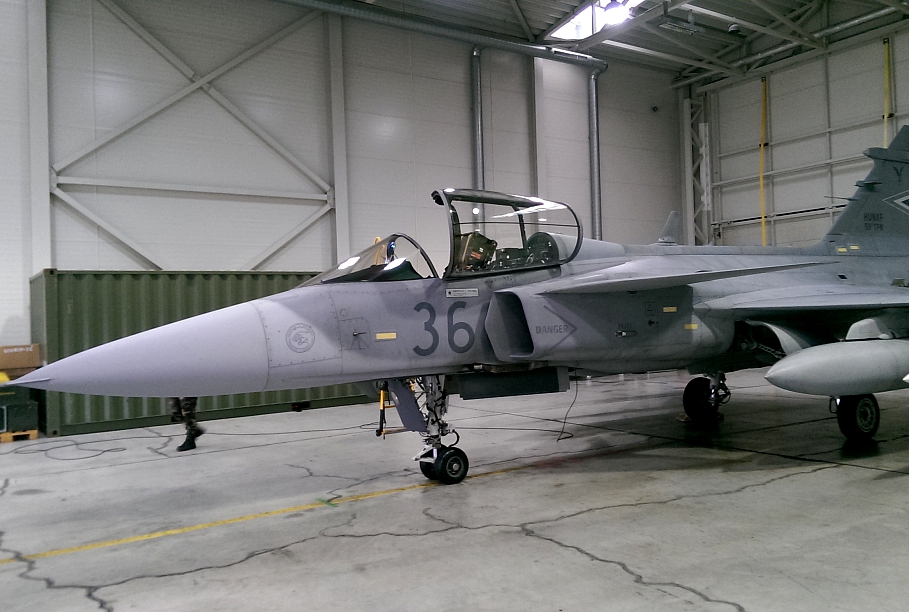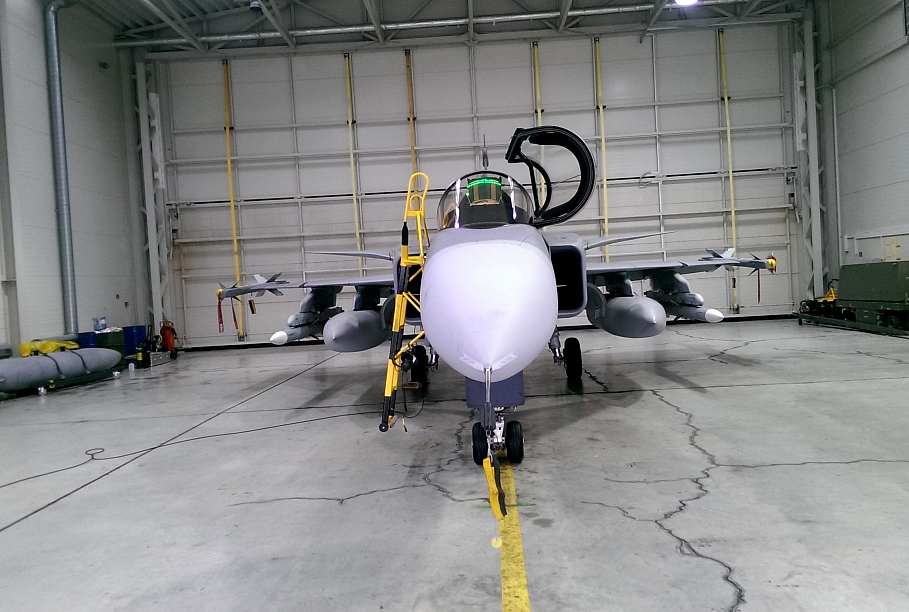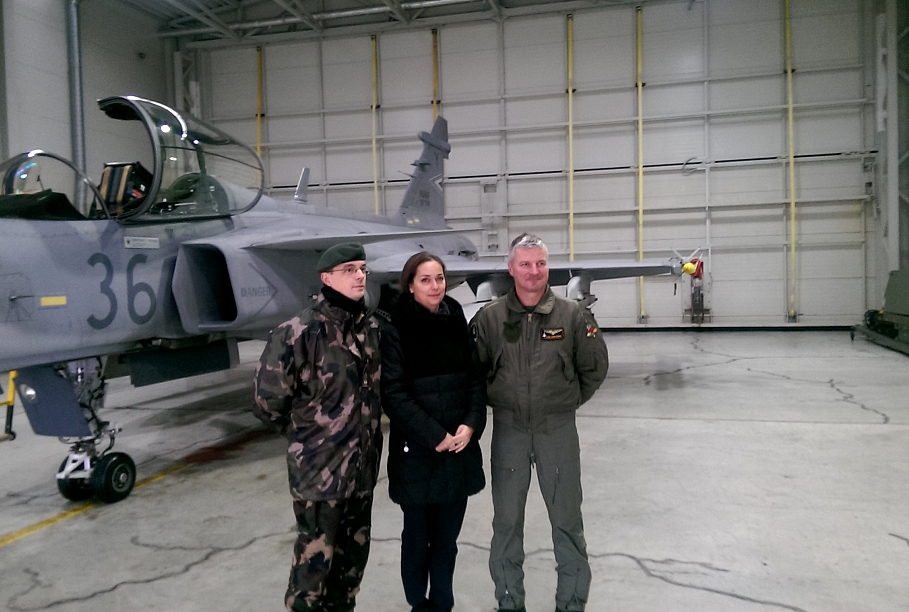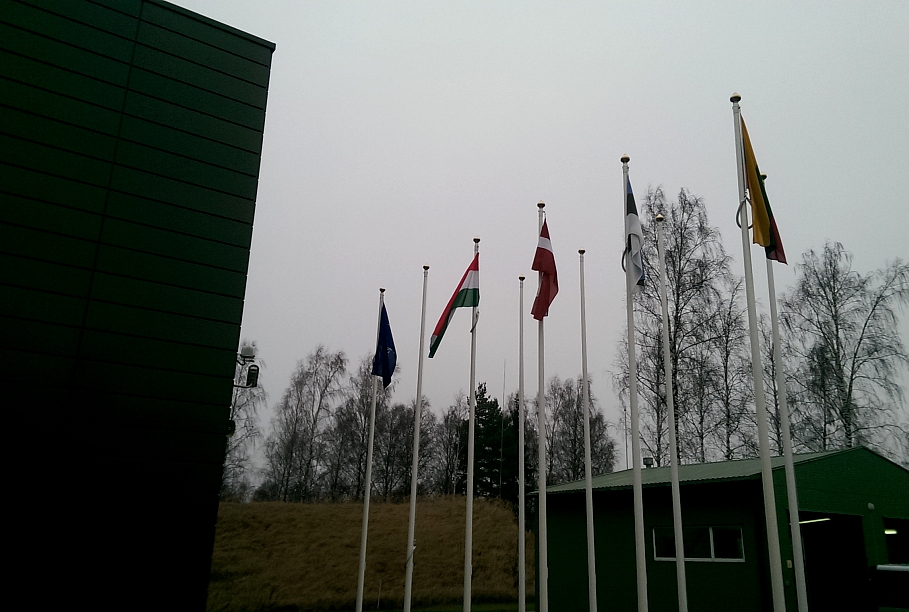High-ranking officials such as Ambassador of Hungary to Latvia Adrien Müller and Tamás Melke, the Defence Attaché of Hungary in Poland were present during exercises showing the Hungarian mission’s combat readiness, just a day after Hungarian President visited in a meeting with his Lithuanian counterpart.
Enveloped by thick fog, two Hungarian Saab JAS-39 Gripen fighter jets flew high in a Tango (Training) scramble to remind people within and without the Baltic states that the countries’ skies are protected by NATO.
The Hungarian mission features two ‘readiness’ and two spare jets. A total of 88 mission personnel including nine pilots are stationed in the Siaulai air base.
The air base is full, with spotless barracks - though it seems without a kitchen, meals are delivered by a nearby hotel - dedicated to mission personnel, along with two 3 km runways, hangars for the aircraft, and a tower overseeing the expanse of tarmac that last year saw as many as 4 take-offs in 15 minutes.
The Commander of the BAP mission, LT Col Tamás Fekete, said that at least two pilots are ready for action at all times, which means little rest for the pilots, who only routinely go to the city on weekends.
Fekete was reluctant to state the exact time in which they are able to become airborne, however NATO rules stipulate that the jets must be airborne in 15 minutes after the alarm has been sounded. The mission is coordinated from the Combined Air Operations Centre in Uedem, Germany.
The Hungarian mission, revealed Fekete, mostly scrambles for planes flying from St. Petersburg to Kaliningrad over the sea, while the German mission in Estonia scrambles for planes going back through the same route.
As Russia's military is busy in Syria, the activity of Russian jets has died down in the Baltics. The Commander of the BAP mission said that whereas previously they used to have six alerts a day in Norway, there are now six alerts a month for the whole BAP mission. The current mission has intercepted more than 15 Russian planes in total, of which two were military jets. In 2014 the BAP intercepted over 150 Russian jets.
"The Russians are not flying so frequently over the Baltic states, as they have other missions, so I think that that part of the world is more complicated," LT Col Tamás Fekete told LSM.
Describing the challenges faced by the Hungarian mission, Fekete said that intercepting military aircraft is a new challenge for them, as over Hungary and Slovenia - Hungary is protecting the Slovenian airspace as well - there are only civilian flyovers.
A pilot himself since 1987, Fekete also shared his thoughts about a Baltic-specific challenge posed by the ever-changing weather.
The air policing mission will be handed to Spain on January 8, 2016. Hungary is to return to policing Baltic skies in 2019.
The planes will be flown back to Hungary one by one. The trip takes an hour and a quarter for the Saab jets with a top speed of Mach 2. Support personnel will return in Lithuanian cargo planes.
The Baltic Air Policing mission, NATO’s assurance to protect Baltic skies, operates on a rotational basis and is currently handled by Germany and Hungary. In 2015, the three Baltic nations are contributing about €3m each to the mission.
A total of eight fighter jets are stationed in the Baltic states in two bases, down from 16 before September 2015. Four German Eurofighter jets are in Estonian Amari base, and four Hungarian Saab JAS-39 Gripen jets are stationed in the Siaulai air base.
The Baltic states, which regained their independence in 1991 after 50 years of Soviet occupation and joined NATO in 2004 are wary of Russia in the wake of its military intervention in Ukraine and aggressive rhetoric.
